Organic is more than just a farming method for Vegobel. It is a business practice that the Belgian company wants to incorporate in all its facets. This herb company has been practicing organic cultivation since its early years and considers this switch a level of responsibility every business owner should make. "We want to go a step beyond regulations and be a pioneer in the organic segment," begins Louis Lauwers.
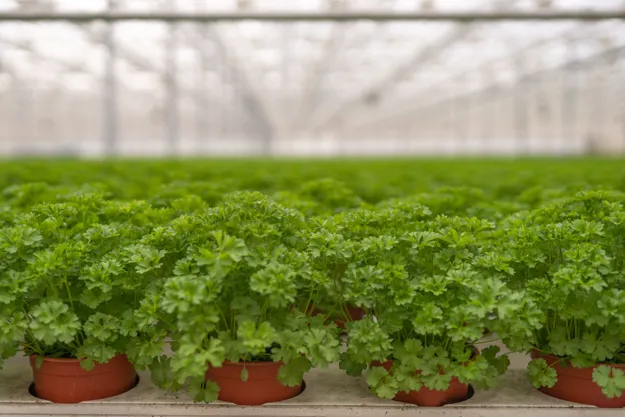
Brothers Arthur, Wim, and Steven Lauwers founded Vegobel in 1995. "It was a very bold move. At that time, even the well-known herbs were still very niche. Thanks to that hydroponic cultivation, the three also managed to grow those completely organic. That was genuinely still in its infancy in Belgium at the time. Yet they persevered, and eventually, through trial and error, their business grew into the company it is today. They can, undoubtedly, be proud of that," the men agree.
In the years that followed, organic increasingly aligned with Vegobel's general business practice. "You could say they had to fight a dual battle. Firstly in organic, and then in the steps herbs still had to make with Northern European consumers. Think of it this way: when they traded lettuce for growing herbs in pots, basil and parsley were still very exotic. Foreign cuisines weren't yet well established in the Netherlands and Belgium. They, thus, planted a few rows of basil and parsley to see if there was any money to be made," Louis explains.
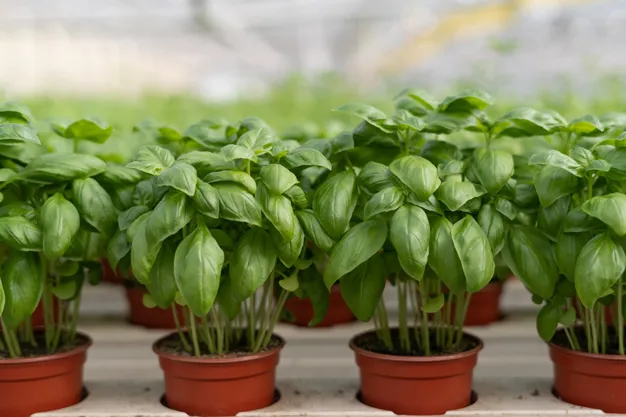
"Over the years, international dishes increasingly began to find their way into Dutch cuisine. The Dutch have always been very world-oriented and like discovering new flavors. But, that's also partly due to the arrival of 'new Belgians and Dutch people', which caused a true shift in eating patterns. That meant people also began looking for new types of spices. Thus, our range also expanded to include herbs like sage or tarragon, but by now, we grow more than 100 types of herbs in pots," says Louis.
New processing methods
When times are tough, like during the pandemic, the herb company tries to stay afloat. "It was, obviously, an unpleasant time, but every cloud has a silver lining. Health became increasingly important, and people were considering the health benefits of herbs. Especially organic herbs. People also started using fresh herbs in teas, and concepts like mocktails - for which potted fresh herbs were ideal - emerged. An additional benefit, which led many to come to us, was that when using herbs in this type of processing, organic is preferred. You want your drink to have pure, pesticide-free aromas. So, that turned out well.”
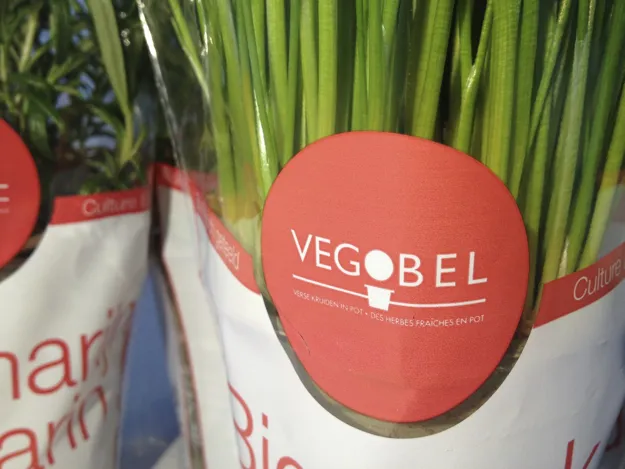
"It was quite a prosperous time for us," Lode adds, "that's just continued. For example, home cooking is still popular after the pandemic, and hospitality companies want to do more to stand out. Then there's also a big 'fun factor' around potted herbs. A pot on the counter or bar looks nice and people see you use pure, fresh herbs. It's great that we've managed to carve out a niche in that area. Meanwhile, the range keeps expanding.”
“The familiar herbs, such as parsley and basil, are still best-sellers, but new varieties, like flat parsley or Thai basil, are gaining popularity, thanks to people experimenting with new dishes. We also work closely with the hospitality sector, with whom we look at what's interesting to incorporate in dishes and how we can add to our assortment for that. Diners who taste the dishes are then introduced to new types of herbs, which they can learn to love. It's a win-win situation."
Responsibility
So, it seems that, when it comes to herbs, the company has won over the general public. There is still a battle to be won in organic, though, the two admit. "Organic was vital within our company pretty early on. It was for our fathers and uncle, but since we've entered the business, we, too, have caught that 'bug'. Despite being a very delicate crop, herbs truly lend themselves to organic cultivation. That's also part of the experience of the product," says Lode.
"You don't want to wash it first; you want to just pick it straight from the pot on the kitchen counter to use in your dishes. But organic is about more than just the cultivation, fertilizers, and greenhouses; it's about everything around that, too. The whole process. We consider it crucial to be ecologically responsible. That's evident not only in cultivation but also (in green) energy use, packaging, and water reuse. We live off the land, so we must give nature the chance to remain natural. We want to share that story with the market. We're not just following the organic farming guidelines; we want to go beyond the regulations."
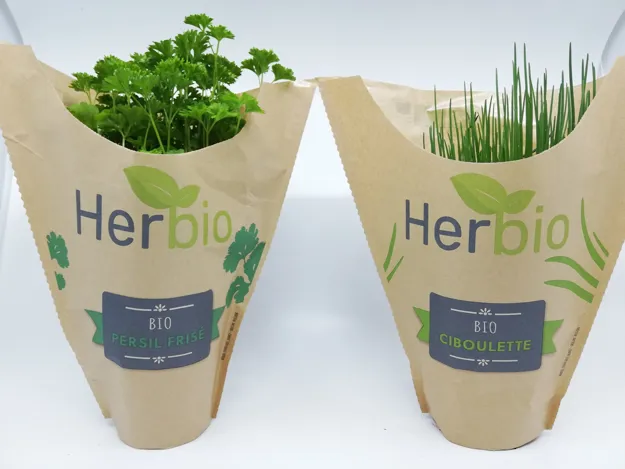
Farm-to-table
"That's how we like seeing our business operations, but this 'beyond-bio' seems to be increasingly catching on with consumers, too. The 'farm-to-table' concept is, of course, well known by now. People want to know how and where something's grown and how it ends up in stores. Then, you have to look at the whole chain. Where organic used to be the trend, that now extends to sustainability in general. Packaging, solar panels, and transportation are all aspects customers also value. The sustainability story must be correct; eventually, everyone must participate. Yes, it requires some investment, but just see what you get in return besides a pure flavor. We keep everything green and healthy. Our dream is that organic will eventually become the given, the norm. Only then will we have done our job really well," Lode concludes.
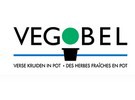 Vegobel
Vegobel
Missestraat 27
2570 Duffel - België
+32 15 32 15 00
[email protected]
www.vegobel.be
